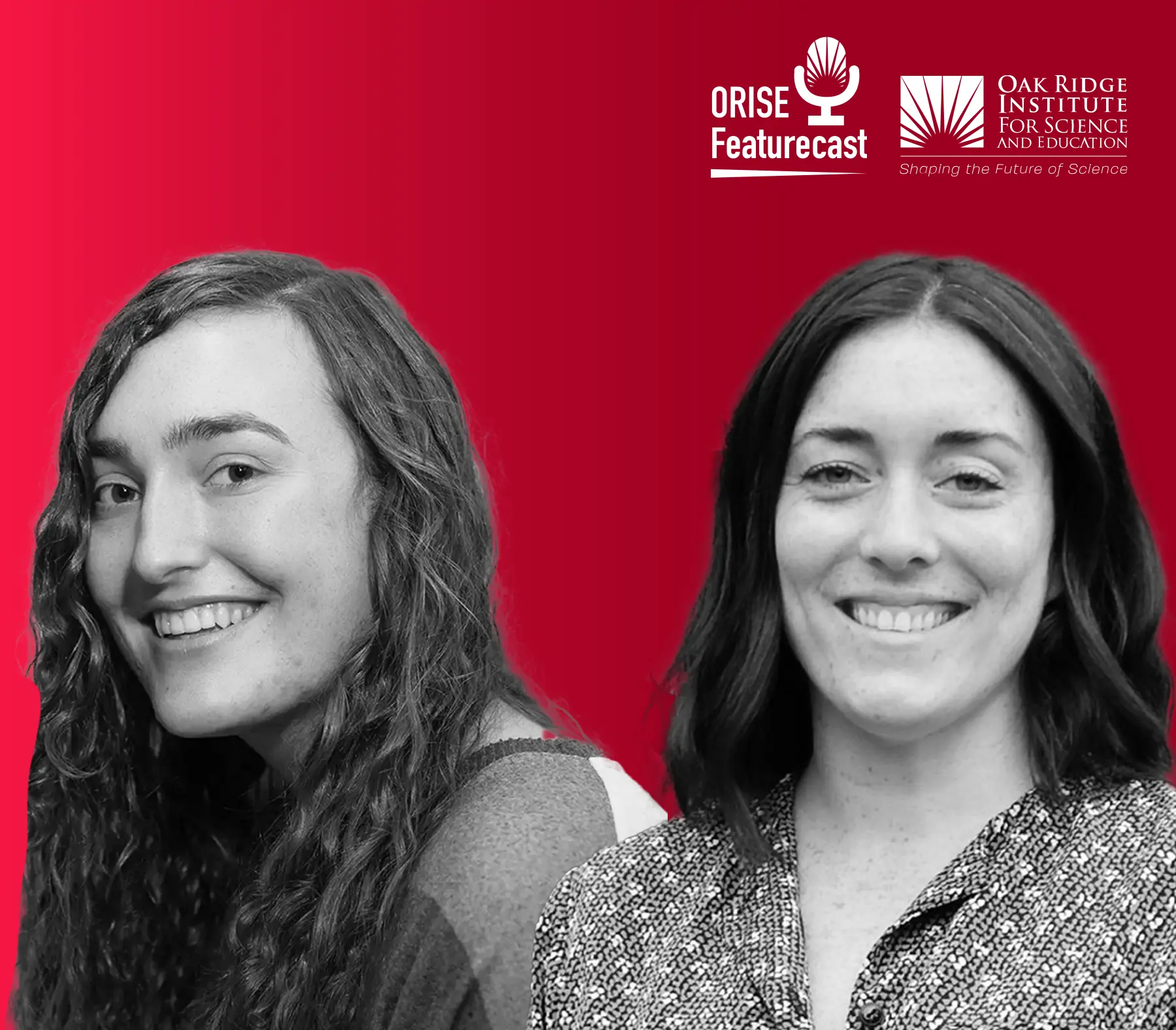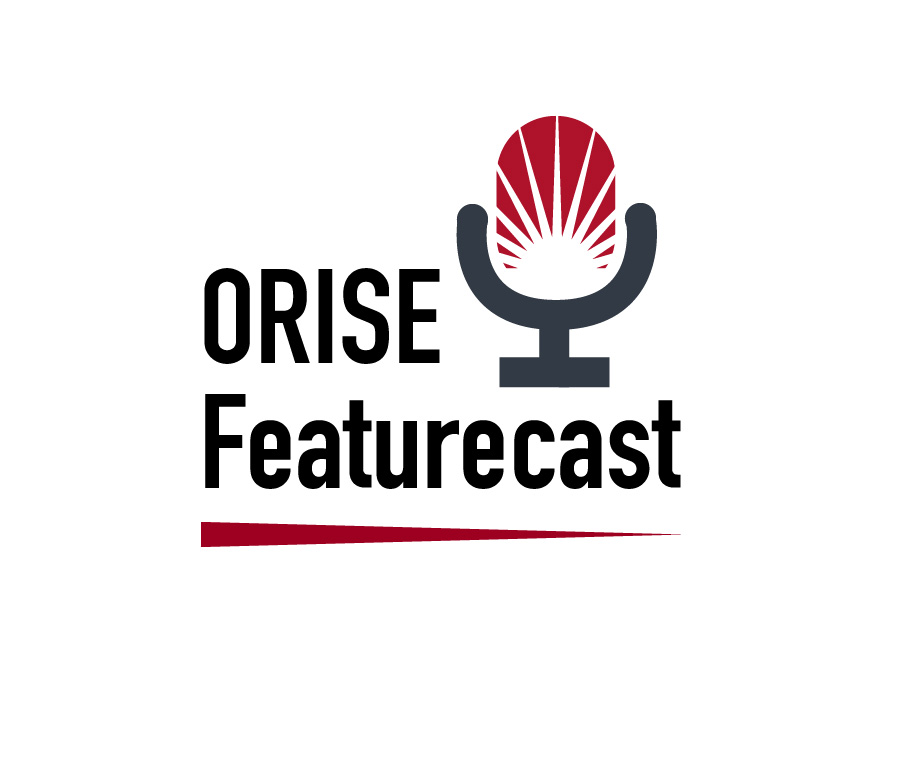Deep waters: ORISE participants discuss the science conducted on the EPA Research Vessel Lake Guardian

Isabel Dunn and Suse LaGory
The Lake Guardian, the largest research vessel owned by the Environmental Protection Agency, is aptly named. The vessel is owned and operated by the Great Lakes National Program Office (GLNPO) and monitors the health of the Great Lakes. It is also one of the research sites of two ORISE participants, Isabel Dunn and Susanna “Suse” LaGory. Dunn and LaGory recently completed an interview on the ORISE Featurecast where they discussed their research in the GLNPO and what it’s like to live and be onboard on the R/V Lake Guardian.
Dunn’s research focuses on data management and reporting under the Great Lakes Restoration Initiative, as well as assisting with communications.
LaGory is part of the Areas of Concern Program.
“The Areas of Concern Program is a very specific portion of the Great Lakes Water Quality Agreement that designated certain areas around the Great Lakes region as being extra, extra polluted and environmentally degraded,” LaGory explained. “We determine how best to clean them up and do environmental remediation and restoration. The side of our office that I am in takes care of overseeing all the money that comes through to support the remediation and restoration efforts. Lots of partnerships and stakeholder relationships.”
Dunn and LaGory grew up in the Great Lakes region and developed an affinity for water from a young age.
“I spent a lot of time specifically on the shores of Lake Huron,” said Dunn. “My family has a history of spending time on Bois Blanc Island in Lake Huron. I think that’s where I fell in love with water and science and knew that was something that I wanted to pursue as a career. I guess I didn’t realize that I’d get to actually do research on the Great Lakes, and even go out on the EPA’s R/V Lake Guardian. But I grew up seeing a lot of research vessels from other agencies out on the water. It’s pretty cool now to say that I’ve also been on one of those and gotten to support the science that takes place there.”
LaGory’s similar upbringing also instilled in her a love of aquatic science.
“I also grew up in the Great Lakes region, outside of Chicago,” LaGory said. “Both of my parents are environmental scientists. To say that I’ve been indoctrinated from a young age is not an overstatement. I grew up camping and hiking and doing all those things with my family. We spent a lot of time on rivers, doing canoeing trips. I think I initially fell in love with rivers and streams. I never really thought that I would be conducting research on this incredibly unique, massive freshwater resource that we have in the Midwest, but it’s been a pretty awesome experience.”
LaGory and Dunn went on to describe the day-to-day life on the R/V Lake Guardian.
“Any time you tell any person that you’ve been on a large research vessel, they always want to know more about it because it is just a very unique experience,” explained LaGory. “Living on a ship for a week or two at a time and doing research. The ship is running 24 hours a day, and you’re on these weird 12-hour shifts, either from 4 a.m. to 4 p.m. or from 4 p.m. to 4 a.m., doing science in the pitch black out in the middle of Lake Superior. Sometimes under a full moon or some really amazing stars. It’s a totally unique experience.”
“It also connects you to a lot of people,” Dunn agreed. “You’re obviously in pretty tight quarters on a ship with a bunch of other scientists and crew members, so you get to know each other fairly well in the amount of time you spent together. And I’ve enjoyed getting to learn about the different equipment that’s necessary to do science out on a lake. A lot of what we do as ORISE participants from GLNPO on the ship is taking care of the water samples that we collect.”
LaGory continued, “I think that another really cool thing is just being around all these different scientists. Hearing that some people are studying the genomes of microbes in the water, and they have this crazy filtration device. You go from that to the ORISE participants, who are filtering water, and doing basic chemistry tests like testing the pH of the water, and turbidity, and things like that. It’s really cool to see the variety of science that’s able to be done through this one avenue, onboard the ship.”

Listen to Isabel Dunn and Suse LaGory talk about their experience as ORISE research participants
Protecting the Great Lakes: A conversation about research at the EPA's Great Lakes National Program Office
The Environmental Protection Agency's Great Lakes National Program Office has a fundamental role to collect and disseminate data on the physical, chemical and biological integrity of the Great Lakes waters. Isabel Dunn and Suse LaGory are ORISE research program participants at EPA GLNPO. In this episode of the ORISE Featurecast, Dunn and LaGory talk about their love of the Great Lakes region, the importance of conservation, what it's like conducting research on the Lake Guardian, the EPA's Great Lakes research vessel, what led them to become interested in science as a career, the importance of mentorship and collaboration, and so much more.
Media Contacts
Pam Bonee
Director, Communications
Phone: 865.603.5142
pam.bonee@orau.org
Wendy West
Manager, Communications
Phone: 865.207.7953
wendy.west@orau.org
The Oak Ridge Institute for Science and Education (ORISE) is a U.S. Department of Energy (DOE) asset that is dedicated to enabling critical scientific, research, and health initiatives of the department and its laboratory system by providing world class expertise in STEM workforce development, scientific and technical reviews, and the evaluation of radiation exposure and environmental contamination.
ORISE is managed by ORAU, a 501(c)(3) nonprofit corporation and federal contractor, for DOE’s Office of Science. The single largest supporter of basic research in the physical sciences in the United States, the Office of Science is working to address some of the most pressing challenges of our time. For more information, please visit science.osti.gov.

